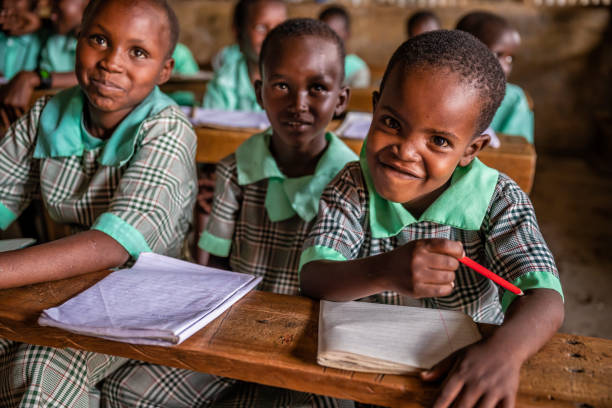When we think about the basic needs of children in orphanages—food, shelter, education—healthcare is often on that list, but vision care tends to get overlooked. Yet, something as simple as an eye test could change the life of a child forever.
Imagine a child struggling to read, falling behind in school, and being labeled as “slow”—when all they really need is a pair of glasses.
That’s why regularizing free eye screening in orphanages isn’t just a good idea—it’s a necessary step towards giving every child the fair shot they deserve.
Why Eye Screenings in Orphanages Are So Important
Many children in orphanages don’t have access to routine health check-ups, let alone specialized care like eye tests. Without parents or guardians to notice early signs of vision problems, these issues often go undiagnosed and untreated.
According to the World Health Organization (WHO), over 12 million children worldwide suffer from vision problems that can be corrected with glasses. The sad truth? Many of these children are in low-resource settings like orphanages, where a simple solution like a screening and a prescription lens could dramatically change their future.
So What Can Regular Eye Screening Really Do?
Let’s break it down:
-
Spot issues early: Catching conditions like nearsightedness, lazy eye, or even cataracts early on makes treatment easier and more effective.
-
Boost learning and focus: Good vision is crucial in school. When kids can see the board clearly, they engage more and learn better.
-
Build confidence: No more squinting, frustration, or feeling left out. Clear vision helps children participate fully—in class and in life.
-
Prevent lifelong complications: Some untreated vision issues can become permanent if not addressed early.
How Do We Make Free Eye Screening a Regular Thing?
This isn’t about one-off charity events. It’s about creating a system that guarantees regular eye care for orphaned and vulnerable children.
Here’s how we can make that happen:
1. Partner with Eye Health Professionals
Link up with optometrists, ophthalmologists, and clinics who are willing to donate time, services, or equipment for periodic screenings.
2. Work with NGOs and Foundations
Health-focused organizations and charities can help mobilize resources, run campaigns, and coordinate with orphanages. This is one of the goals and strengths of OASIS Foundation
3. Get Government Involved
Local and national health bodies should integrate vision screening into standard health checks for children in state care. Policy support can make a huge difference.
4. Deploy Mobile Eye Clinics
A van equipped with the right tools can bring vision care to even the most remote orphanages. It’s convenient and scalable.
5. Train Caregivers
Equip orphanage staff with basic knowledge on how to spot early warning signs of vision issues and how to support children during follow-ups.
Keeping It Going: How to Make It Sustainable
-
Make it routine: Set up a calendar for bi-annual or annual screenings.
-
Educate and involve the children: Teach them about eye health in fun and simple ways.
-
Tap into CSR programs: Encourage businesses to fund or sponsor screenings as part of their corporate social responsibility efforts.
-
Create a database: Track who has been screened, diagnosed, treated, and needs follow-up—this helps maintain accountability and progress.
Final Thoughts: A Clear Vision for Every Child
Every child deserves the right to a bright future—and that starts with the ability to see it clearly.
Regularizing free eye screening in orphanages is more than just a health campaign. It’s an act of dignity, compassion, and inclusion. It gives children the tools they need to thrive academically, socially, and emotionally.
Let’s not wait until another child’s potential is lost in the blur of poor vision. Let’s take action—because every child deserves to see the world clearly.
Want to get involved?
Support organizations offering free eye screenings, partner with healthcare professionals, or donate to causes making eye care accessible for orphans and vulnerable children.
Your little act could make a world of difference in how a child sees the world—literally.

